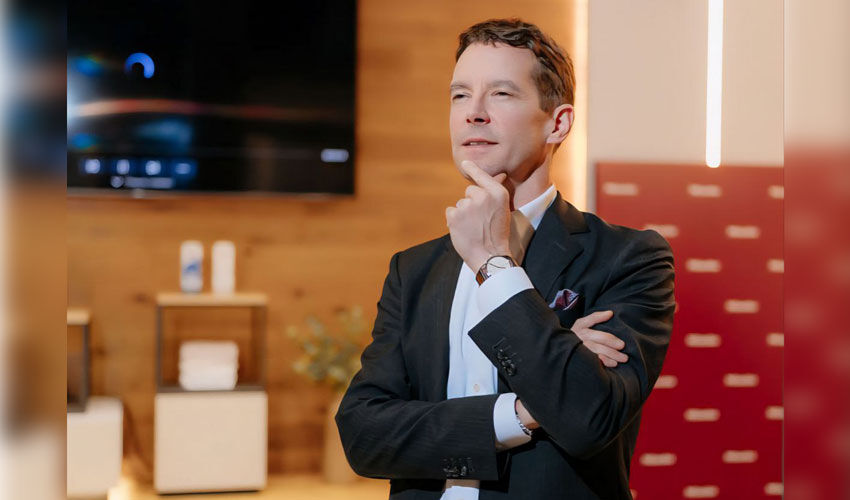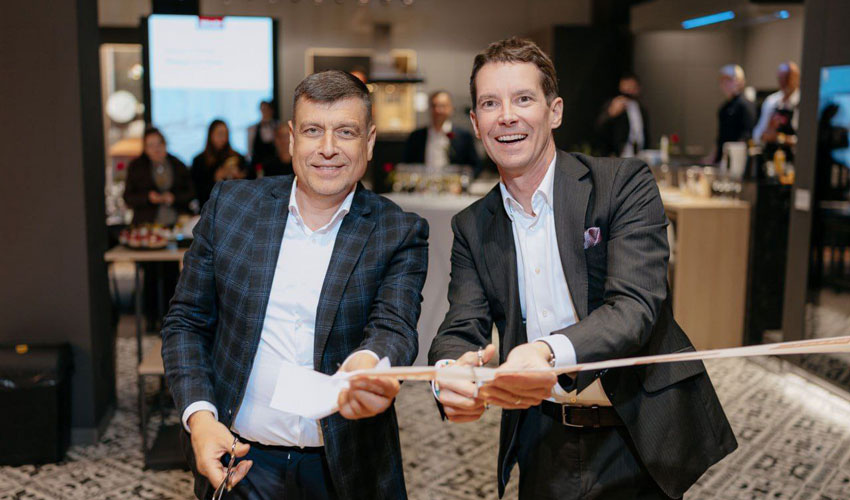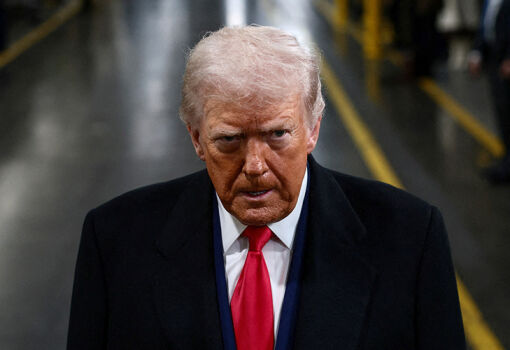
Eric Swenson
LP: – Mr. Swenson, you have been responsible for the development of the Miele brand in Central and Eastern Europe for many years. What do you see in Moldova today – potential or risk?
— Moldova is an amazing market that is constantly changing. If you compare the situation with what it was five years ago, these are two different countries. Cities, infrastructure, and service levels are evolving. We see a culture of premium consumption taking shape: people here are beginning to think in terms of quality, durability, and emotional value. They are starting to look at things differently — they want not just to own something, but to understand what they are buying and why. This is a distinctive feature of the new consumer, appearing not only in the capital but also in the regions. That is why I am absolutely sure: the Moldovan market is ready for the premium segment, and we see serious prospects here. For us, Moldova is not a test market but a strategic one, where we expect to be for the long term.
LP: – Many retailers believe that Moldova is too small and a “price-sensitive” market for brands like Miele. Why did you decide not just to sell, but to invest in development?
— This is a very important question. For us, Moldova is not just another market, but part of a broader regional strategy. We consider Central and Eastern Europe a zone of active growth, and Moldova shows unique dynamics in this respect. The local customer, despite limited average income, is receptive to quality. We see a growing generation of consumers for whom it is important not just to buy cheaper, but to buy right. We are not focused on mass appeal. Our product is about long-term value. That is why we opened a Miele monobrand Experience Center here — not just a store, but a space where a person can understand the brand’s philosophy, see how the appliances work, try them in action, and feel the difference between a “product” and a “tool for everyday life.”
LP: – So it’s not just a store, but something like a showroom with a philosophy?
— Absolutely. We call it an Experience Center. It is a place where the customer can experience the appliances in person, feel how they work, and understand why they are worth the money. After all, it is impossible to explain over the internet how, say, our dishwasher differs from any other. You need to hear it, to see how it opens, how it moves, how quietly it operates. This is the essence of our approach: we don’t just sell — we teach people to understand quality.
LP: –Let’s look pragmatically: premium equipment is always a high price. How can you actively develop a brand in a country where the average salary is far from European?
— We always separate two concepts: price and value. Price is what you pay today. Value is what you get tomorrow and the day after. Our products are designed not for 2–3 years, but for decades. There are families where Miele appliances last more than 20 years. We create appliances that are not thrown away, but passed on to children. It is not an expense; it is an investment in quality of life. Yes, we realize that in any country the premium segment is limited, but it exists everywhere. And in Moldova this segment is growing faster than skeptics think. People are beginning to realize that by buying something for years, they save money, nerves, and time.
LP: – So such a purchase is tantamount to an investment in everyday life?
— I would say, in lifestyle. We have a motto — “Immer Besser,” which means “always better.” It’s not an advertising slogan; it’s the essence of our culture. We don’t just do well; we do as well as possible. The company has adhered to this philosophy for 125 years. Every engineer, every designer, every marketer at Miele knows that the standard is not a ceiling but a starting point. We never start with the question “How much will it cost?” We start with the question “Can we do better?” And if the answer is yes, we do it. The numbers come later. This approach defines Miele at every level — from development to service.
LP: – You own a curious phrase: “We don’t count money until we decide what we want to create”. Is that really true?
— Absolutely. I’ll give you an example. Most dishwashers in the world recirculate water. It’s technologically simple and economical: the machine takes water, runs it through a filter, and uses it again. It all makes sense. But at Miele we decided that every wash should use only fresh water — no recirculation. Why? Because it’s cleaner. Because it’s the right thing to do. Yes, it’s a decision that increases cost, but no one argued. We did it because it’s right. Not for marketing or PR. It’s simply the company’s philosophy: if we can do better, we do it.
LP: – There is a perception that Miele is a “too German” companywith too rigid standards. How do you manage to find a balance between global strategy and local specifics?
— We adapt, but we don’t compromise who we are. It is very important for us to respect the culture, the country, and the people. When we opened the Miele center in Chisinau, we chose a building with history and integrated into it a modern German interior with elements of Moldovan décor. For example, we used an old Moldovan carpet more than 100 years old. This is a symbol of how we see partnership: a combination of German engineering and Moldovan identity. It is important to us that the brand does not look foreign, but becomes part of the country’s cultural code.
LP: – You mentioned partnership. Tehnotrend is your official representative in Moldova. How do you build relations with your local colleagues?
— Exclusively on trust: this is probably the key element of our philosophy. We don’t engage in haggling. We do not work with those who just want to “buy and sell.” For us, partnership is a convergence of goals. Tehnotrend is a strong partner who knows the market from the inside. If they say a certain price is impossible — we believe it. If they propose an idea that brings the brand closer to the customer — we support it. What matters is not who will earn more, but where we are going. That is why decisions about launching projects are made jointly: first the idea, then the strategy, and only then the money.

Tehnotrend owner Mircea Baciu and Eric Swenson
LP: – So for you, trust is higher than numbers?
— Exactly. Simply put, we do not practice threats or blackmail. We don’t negotiate in the spirit of “If you don’t give us a discount, we won’t work.” That’s not our style. We build our business on respect and transparency. When there is trust, you can move forward calmly and predictably.
LP: – Speaking of retail formats, how do you assess the market shift towards e-commerce?
— Online is important, but it is only part of the ecosystem. You can sell Miele appliances online, but you can’t explain them. Our products require contact. That’s why we rely on Experience Centers — places where people can experience the brand: you can turn on the appliances, listen to how they work, understand why they are worth the money. Online informs; offline lets you experience it. Together, they build trust. The share of online shopping will continue to grow, but in the premium segment it complements — rather than replaces — physical stores.
LP: – Why is a monobrand more important than a multi-brand when buying your appliances? Especially since hypermarkets have a wider selection and aggressive promotions?
— It’s simple: a monobrand store offers a unique experience. Every element is designed around Miele — personalized consultations, live demonstrations, and post-purchase support. It’s not just making a sale; it’s creating a trusting relationship that lasts for years. You’ll never get that set of services in a supermarket.
LP: – Who are your main competitors both in the world and on the Moldovan market?
— We respect all players: Bosch, Siemens, Electrolux, AEG — these are strong brands. But our main competitor is ourselves. We are not chasing other people’s results; our only competition is with ourselves. We don’t fight for the market; we strive for perfection. We don’t say, “Look, we are the first,” we say, “Look at what we did right.”
LP: – Were there moments when you felt admiration for other brands’ technology?
— Of course. I love going to trade fairs, especially IFA in Berlin. There you can see who is moving where. Sometimes we see interesting solutions from our colleagues, such as glass-front ovens or designer touch panels. But we don’t copy anything. We ask ourselves: “Is this in the spirit of Miele?” If not, we don’t do it. We don’t aim to be trendy; we aim to do what’s right.
LP: – What does innovation mean to you today?
— That’s a good question! It’s not just a new feature, but an improvement that makes sense. Our engineers create solutions that truly change everyday life: automatic detergent dosing, TwinDos, Wi-Fi connectivity, induction cooktops that adapt to the user’s habits. All these technologies are not for the “wow effect,” but because they make life easier, safer, and cleaner. When a person tries them, they realize it’s not just technology — it’s intelligence built into the home.
LP: – In your opinion, is sustainable development a fashion or a real strategy?
— It’s not a trend; it’s part of our DNA. We’ve always said that the best way to protect nature is to make appliances that last longer. Our appliances are tested for a 20-year service life. We see that the new generation of consumers is increasingly interested in sustainability: how appliances are made, whether they can be repaired, recycled, and what they are made of. The origin and fate of a product are important to them. And we are technically ready for this.
LP: – One last question: what is your favorite Miele appliance?
— Probably the refrigerator. It works 24 hours a day, requires no attention, doesn’t complain, and at the same time makes the home cozy. But seriously, I started my career in refrigerator production, so I have a special attachment to them. And, of course, the coffee machine. No morning starts without it — as with most people who love life, order, and taste.

